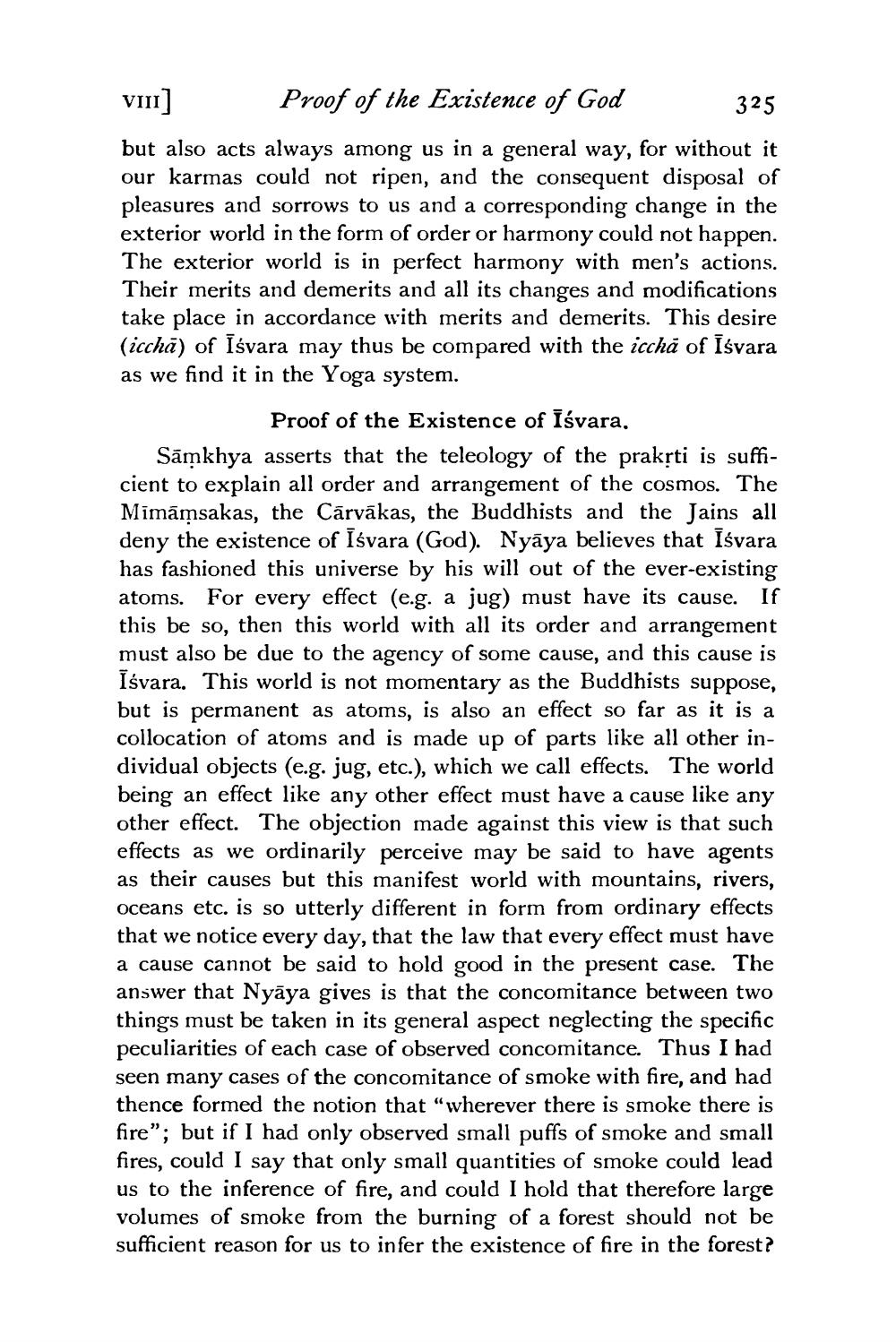________________
v1] Proof of the Existence of God 325 but also acts always among us in a general way, for without it our karmas could not ripen, and the consequent disposal of pleasures and sorrows to us and a corresponding change in the exterior world in the form of order or harmony could not happen. The exterior world is in perfect harmony with men's actions. Their merits and demerits and all its changes and modifications take place in accordance with merits and demerits. This desire (icchā) of Isvara may thus be compared with the icchă of īśvara as we find it in the Yoga system.
Proof of the Existence of Isvara, Sāmkhya asserts that the teleology of the prakrti is sufficient to explain all order and arrangement of the cosmos. The Mimāmsakas, the Cārvākas, the Buddhists and the Jains all deny the existence of īśvara (God). Nyāya believes that īśvara has fashioned this universe by his will out of the ever-existing atoms. For every effect (e.g. a jug) must have its cause. If this be so, then this world with all its order and arrangement must also be due to the agency of some cause, and this cause is īśvara. This world is not momentary as the Buddhists suppose, but is permanent as atoms, is also an effect so far as it is a collocation of atoms and is made up of parts like all other individual objects (e.g. jug, etc.), which we call effects. The world being an effect like any other effect must have a cause like any other effect. The objection made against this view is that such effects as we ordinarily perceive may be said to have agents as their causes but this manifest world with mountains, rivers, oceans etc. is so utterly different in form from ordinary effects that we notice every day, that the law that every effect must have a cause cannot be said to hold good in the present case. The answer that Nyāya gives is that the concomitance between two things must be taken in its general aspect neglecting the specific peculiarities of each case of observed concomitance. Thus I had seen many cases of the concomitance of smoke with fire, and had thence formed the notion that "wherever there is smoke there is fire"; but if I had only observed small puffs of smoke and small fires, could I say that only small quantities of smoke could lead us to the inference of fire, and could I hold that therefore large volumes of smoke from the burning of a forest should not be sufficient reason for us to infer the existence of fire in the forest?




